The Optical Networks Group at UCL is a world-renowned research team led by Professor Polina Bayvel. Learn more about our current members, working with us and our alumni.
People
Work with us
Alumni
Academic Staff
- Professor Polina Bayvel - Head of the Optical Networks Group / Prof. of Optical Communications
- BSc(Eng), PhD, CBE, FRS, FREng, FIEEE, FOSA, FInstP, HonFIET
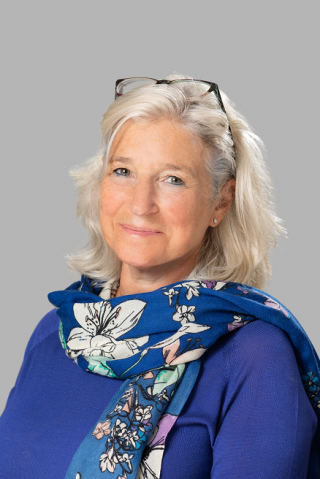
Professor Polina Bayvel is the Head of the Optical Networks Group at UCL which she also set up in 1994. Her research interests are in the area of optical communications and include wavelength-routed optical networks, high-speed optical transmission, and the study and mitigation of fibre nonlinearities. She was one of the first to show the feasibility of using the wavelength domain for routing in optical networks, and designed wavelength-selective devices needed for their characterisation and implementation. More recently she has focused on the study of capacity limits in nonlinear optical networks and optical networks for the cloud. She has authored or co-authored more than 350 refereed journal and conference papers.
Polina Bayvel received her BSc (Eng) and PhD degrees in Electronic & Electrical Engineering from University of London, UK, in 1986 and 1990, respectively. In 1990, she was with the Fiber Optics Laboratory, General Physics Institute, Moscow (formerly USSR, now Russian Academy of Sciences), under the Royal Society Postdoctoral Exchange Fellowship. She was a Principal Systems Engineer with STC Submarine Systems Ltd, London, UK, and Nortel Networks (Harlow, UK, and Ottawa, ON, Canada), where she was involved in the design and planning of optical fibre transmission networks. During 1994-2004, she held a Royal Society University Research Fellowship at University College London (UCL), and in 2002, she was appointed to a Chair in Optical Communications and Networks.
Professor Bayvel is a Fellow of the Royal Society (FRS), Royal Academy of Engineering (FREng), Optical Society of America (FOSA), Institute of Electronic & Electrical Engineers (FIEEE), the UK Institute of Physics (IoP), and the Institute of Engineering and Technology (IET). She was the recipient of the Royal Society Wolfson Research Merit Award (2007-2012), the 2013 IEEE Photonics Society Engineering Achievement Award, the 2014 Royal Society Clifford Patterson Prize Lecture and Medal, and in 2015 together with five members of her group, she received the Royal Academy of Engineering Colin Campbell Mitchell Award for 'pioneering contributions to optical communications technology'.
She was the PI of the UK EPSRC Programme Grant UNLOC (2012-2018), focused on unlocking - and maximising - the capacity of optical communications, and now leads the TRANSNET Programme Grant (2018-2024).
She was awarded CBE (Commander of the Order of the British Empire) in the 2017 New Year's Honours List for services to engineering.
- Dr Alejandra Beghelli - Lecturer in Optical Communications and Networks
- Alejandra Beghelli received her B.Eng degree, professional title and M.Sc. degree in electronic engineering from Universidad Técnica Federico Santa Maria, Chile, in 1994, 1996 and 2001, respectively. Later, she received her PhD degree in electronic engineering from University College London, UK, in 2006.
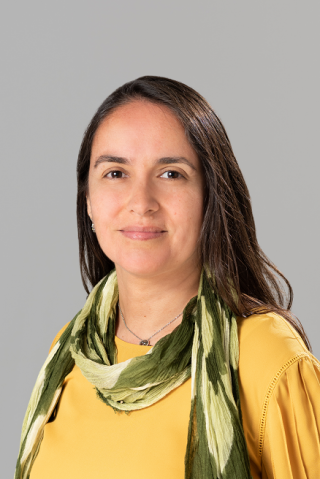
From 1997 to 2012, Dr Beghelli held different academic and management positions at Universidad Técnica Federico Santa María. In 2012 she was a Visiting Scholar to Scuola Superiore Sant'Anna, Italy. During the period 2008-2016, she was an Honorary Research Associate in the Department of Electronic and Electrical Engineering, University College London, UK.
From 2013 to 2020 she was an Associate Professor at Universidad Adolfo Ibañez and from 2019-2020 she spent a sabbatical year working as a lecturer at the Department of Computing, Goldsmiths, University of London and a Visiting Scholar at City, University of London. Since August 2020, she is a Lecturer in the Department of Electronic and Electrical Engineering, University College London, UK.Dr Beghelli has been the recipient of several academic excellence and teaching awards as well as scholarships, being the most important the IEEE LEOS Graduate Fellowship by the IEEE Photonics Society, the MH Joseph Prize by the British Federation of Women Graduates, Presidente de la República Scholarship by the Chilean government and the Outstanding Teacher Award by UTFSM.
Her current research topics include research allocation in optical networks, reinforcement learning applied to optical networking and creativity in engineering.
- Dr Kari Aaron Clark - Royal Academy of Engineering Senior Research Fellow
- Dr Kari A. Clark received a BSc MPhys degree in Physics at the University of Warwick in 2013. He then completed two internships in the electronic engineering industry and joined the Optical Networks Group at UCL in 2014. In 2016, he completed a further nine-month internship at Microsoft Research Cambridge, applying his research in an industrial context. In 2021, he was awarded the PhD and became a Research Fellow with the TRANSNET Programme within the Optical Networks Group.
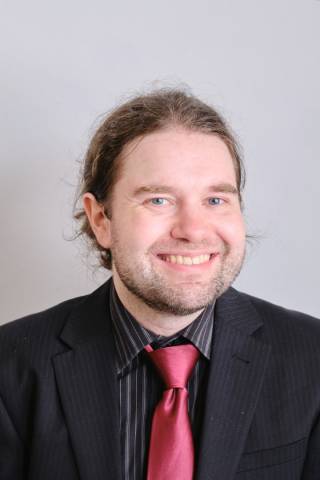
Dr Clark is currently a Royal Academy of Engineering Senior Research Fellow with the Optical Networks Group (ONG) UCL, having been awarded a 5-year Research Fellowship with the Royal Academy of Engineering in 2022. His fellowship research is to explore methods of optical clock synchronisation to achieve sub-nanosecond clock synchronisation accuracy in 6G radio access networks. Further information about Dr Clark’s fellowship can be found here. His doctoral research focussed on using central optical clock synchronization and clock phase caching to achieve sub-nanosecond clock and data recovery times in optically switched data centre networks.
His research interests include:
- Optical clock distribution
- Optical fibre time-of-flight compensation
- Time synchronised radio access networks
- Synchronised data centre communications
- Clock phase caching
- Sub-nanosecond clock and data recovery
Awards and Funding:
- Royal Academy of Engineering Research Fellowship (2022 to 2027)
- Overall Winner of the EPSRC Connection Nation Pioneers Competition 2018
- Bronze in Engineering at the STEM for BRITAIN 2019 competition held at UK parliament
Contact email: kari.clark.14@ucl.ac.uk
- Dr Filipe M. Ferreira - UKRI Future Leaders Fellow
- Filipe M. Ferreira received a PhD in Electrical and Computer Engineering from the University of Coimbra, Portugal, in 2014 for his work on high capacity optical transmission systems based on mode division multiplexing.
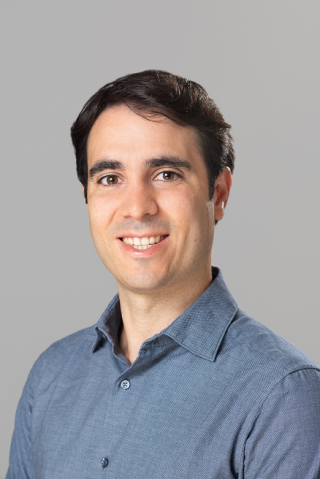
During this time, he worked as a Research Engineer for the optical networks Research & Technology division of Coriant (former Nokia Siemens Networks), leading activities on the EU-FP7 research project MODEGAP, including: few-mode fibres nonlinear modelling and profile design, advanced optical links design and simulation.
In 2015 he was awarded a Marie Curie Individual Fellowship to carry out research on space division multiplexing. During this fellowship, he investigated the linear and nonlinear coupling mechanisms in fibres for spatial division multiplexing, and the opportunities for digital back-propagation.
Filipe joined the Optical Networks Group at UCL as a Senior Research Fellow in October 2019 to work on the EPSRC TRANSNET project, working on the development of intelligent transceivers aimed at better approaching the nonlinear Shannon limit in typical optical fibre networks.
In October 2020 Filipe was awarded a UKRI Future Leaders Fellowship to develop new technologies capable of establishing thousands of parallel optical paths over a single optical fibre strand which will dramatically expand the capacity of the Internet. The project aims to produce a new photonic processor that merges photonic integrated circuits and machine learning so that large-scale spatial parallelism can be achieved within every optical fibre.
Contact email: f.ferreira@ucl.ac.uk
- Professor Robert Killey - Professor in Optical Communications
Robert Killey received his BEng degree in Electronic and Communications Engineering from the University of Bristol in 1992 and an MSc in Microwaves and Optoelectronics from UCL in 1994. He received a DPhil degree from the University of Oxford in 1998. His doctoral work was on InGaAsP Fabry–Perot optical modulators and their applications in soliton communications.
He has been a member of the academic staff at UCL since 2000 and is currently a co-investigator on the EPSRC TRANSNET project; a multidisciplinary research programme investigating intelligent resource allocation in dynamic optical networks
Dr Killey is an Associate Editor of the IEEE/OSA Journal of Lightwave Technology and the IEEE Photonics journal, and has served on the Technical Programme Committees of OFC and ECOC. He was a recipient of the 2015 Royal Academy of Engineering 2015 Colin Campbell Award and is a Senior Member of the IEEE.
Current research interests:
- Modelling and experimental investigations of the effects of fibre nonlinearity on high bit-rate WDM data transmission
- Simplified direct detection and coherent optical transceivers
- The applications of digital signal processing for transmission impairment mitigation in high capacity optical communication systems
Contact email: rkilley@ee.ucl.ac.uk
- Dr Zhixin Liu - Associate Professor in Optical Communications and Networks
- Zhixin Liu received his PhD degree in Information Engineering from the Chinese University of Hong Kong, in 2012. After a short start-up experience, he joined the Optoelectronics Research Centre (ORC) at the University of Southampton in 2013 and became a Senior Research Fellow in 2015. In 2016, he joined the optical networks group at the Department of Electronics and Electrical Engineering at UCL and became an Associate Professor in 2021. Dr Liu is a senior member of both IEEE and Optica (formerly OSA).
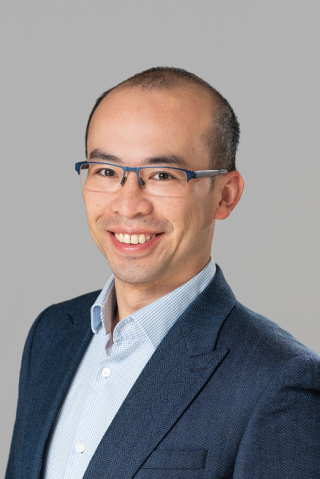
His research areas are optical signal processing and its applications in communication systems and scientific equipment. He has pioneered new techniques for high precision data conversion and low-latency data communications that have led to several world-first demonstrations. Dr Liu has co-authored more than 100 papers in international peer-reviewed journals and conferences, with several high-profile papers in Nature Electronics, Nature Communications, eight invited papers to the IEEE/OSA Journal of Lightwave Technology as well as top-ranked publications in leading optical communication conferences (OFC and ECOC), including seven post-deadline papers.
Dr Liu is regularly invited to speak at leading international conferences and serves on the technical programme committees of CLEO-PR, OECC and ACP. He also holds two patents, with one licenced to a leading industrial manufacturer. Dr Liu has been a PI on more than ten grants from Industry and Research Councils, totalling over £1.7M. He is also a co-investigator on the £6.1m EPSRC Programme grant TRANSNET.
Contact email: zhixin.liu@ucl.ac.uk
His research interests include:
- High-performance frequency comb
- Coherent signal processing
- Low-latency, low-power consumption transceivers for data centre interconnects
- Integrated photonic circuits for communication systems
Current projects:
- Accurate Time and radio signal distribution through Optical access networks to enable sub-Metre positioning accuracy (ATOM)
- Overcoming Resolution and Bandwidth limIT in radio-frequency Signal digitisation (ORBITS)
- Advanced Signal Generation And Detection System For Next-generation
- PhotoDAC: Photonically-synthesized Digital-to-Analogue Conversion
- TRANSNET : Transforming networks - building an intelligent optical infrastructure
Past projects:
- Development of a pre-commercialisation frequency comb prototype for cloud data centre networks and metro telecom systems
- Photonic-assisted Real-time Oscilloscope
- Optically-switched Data Centre Networks Using Thermal-insensitive Hollow-Core Fibre
- Optically-assisted Fourier analysis
- UNLOC: UNLocking the Capacity of Optical Communications
Students:
- Zichuan Zhou
- Jake Paterson
- Alexander Bennett
Research Fellows:
- Amany Kassem
- Mu-Chieh Lo
- Temitope Odedeyi
- Ronit Sohanpal
- Dr Alfonso Ruocco - Lecturer in Optical Communications and Networks
- Alfonso Ruocco is currently a Lecturer in Optical Communications and Networks in the Department of Electrical Engineering at the University College London. He received his MEng in Electronic Engineering from the Federico II University of Naples in 2011 and his PhD in Photonics Engineering from the University of Ghent/IMEC in 2016, where he explored novel high complexity integrated photonic circuits.
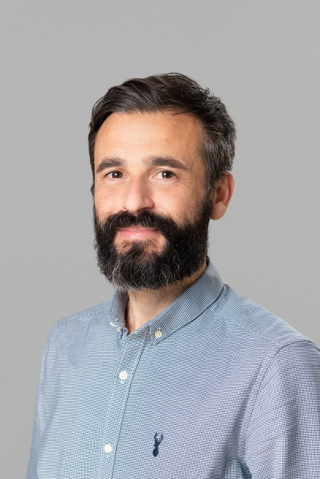
He was subsequently appointed as a Postdoctoral Associate within the Research Laboratory of Electronics at the Massachusetts Institute of Technology, where he investigated novel CMOS-compatible integrated photonics systems for metrology and communication systems. Following this, Alfonso held the position of Research Associate and Senior Research Associate within the Electrical Engineering Department at the University of Cambridge, where he investigated novel hybrid nanomaterials/CMOS-compatible photonic platforms for communication systems and ultrafast photonics.
Alfonso’s current research interests include integrated photonic systems implemented on high index contrast platforms, photonic transceivers, ultrafast and quantum photonics.
Contact email: a.ruocco@ucl.ac.uk - Professor Georgios Zervas - Professor of Optical Networked Systems, EPSRC Fellow
- George Zervas is currently Professor of Optical Networked Systems in the Department of Electrical and Electronic Engineering at University College London. He received his MEng degree in Electronic and Telecommunication Systems Engineering with distinction and PhD degree in optical networks from the University of Essex in 2003 and 2009 respectively. Following this, George held the positions of Research Associate and subsequently Research Fellow and Lecturer as a member of the High-Performance Networks Group at the University of Essex where he investigated multi-granular optical switching.
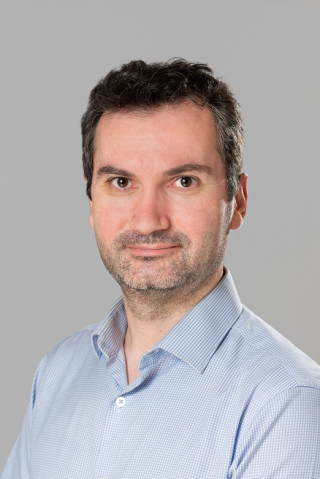
Between 2012-16 he was appointed Lecturer and Senior Lecturer at the University of Bristol where he led the research activities on optical networked systems with an emphasis on optical switching, flexible and space division multiplexed networking, programmable electronic and optical hardware as well as data centre systems. He also held the position of Visiting Associate Professor at Keio University, Tokyo. He is the recipient of the prestigious 5-year Fellowship from the Engineering and Physical Sciences Research Council (EPSRC) within Information and Communications Technology in the U.K.
He is the author and co-author of over 275 international peer-reviewed journal and conference papers including numerous prestigious post-deadline papers at ECOC/OFC as well as best paper awards. He has also given over 40 invited talks at several international conferences. His research interests lie in the fields of optical networked systems for data centres, high-performance computing and telecoms with a particular focus on optical switched interconnects, topologies, control, architectures and compute and network co-design.
George has been involved in several current and past EC and EPSRC and industrial funded projects as principal and co-investigator. He has been a Technical Programme Committee member on international conferences such as OFC, ICC, Globecom, ONDM and ACP. He is an associate editor of IEEE Networking Letters and has been serving as guest associate editor on IEEE JOCN. Dr Zervas has been involved in the Internet Engineering Task Force (IETF) and Open Grid Forum (OGF) standardisation fora. George is also a member of the EPSRC Peer Review Associate College and has served as an expert reviewer in other non-UK national funding bodies.
George is currently an EPSRC Fellow (OptoCloud) and co-investigator on the TRANSNET programme grant. His research has been funded and supported by industry partners including Microsoft, Huber+Suhner Polatis, British Telecom, Sumitomo Electric, II-VI, Xilinx and Micron.
For more information please visit my personal website.
Contact email: g.zervas@ucl.ac.uk
Post-doctoral Researchers & Research Staff
- Dr Fabio Barbosa
- Fabio Barbosa received his PhD from the University of Campinas (Unicamp, Brazil) where he investigated digital signal processing (DSP) algorithms for coherent optical receivers employed in transmissions with probabilistic constellation shaping.
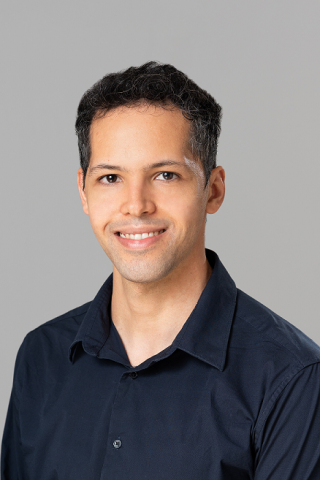
He joined the Optical Networks Group in August 2021 as a post-doctoral researcher on the project ‘Beyond Exabit Optical Communications’ led by Dr Filipe Ferreira. Fabio is responsible for the development of DSP strategies, coding and detection methods to enable the efficient use of transmission resources.
Contact email: fabio.barbosa@ucl.ac.uk
- Dr Zun Htay
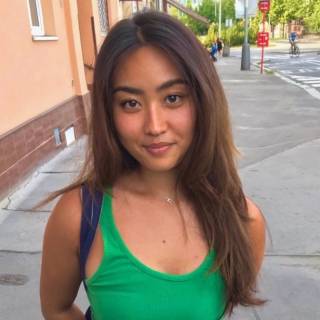
Zun Htay received her bachelor’s degree in electrical and electronics engineering in July 2019 and later pursued her PhD at Northumbria University in the following October where she investigated high speed reconfigurable free space optical communication systems using software defined environment.
Zun later joined the Optical Networks Group in February 2023 as a post-doctoral researcher on the project ‘Beyond Exabit Optical Communications’ supervised by Dr Filipe Ferreira. Her current research focuses on adaptable and programmable multiplexing algorithms for optical transceivers.
Contact email: z.htay@ucl.ac.uk
- Dr Shirin Hussein
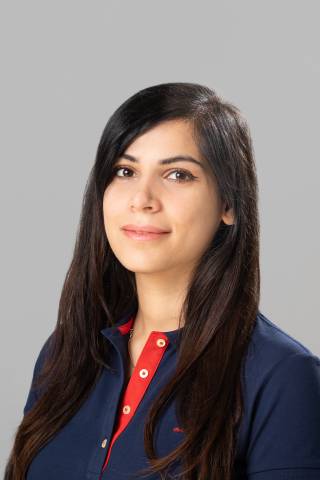
Shirin obtained her PhD from University College London (UCL), focusing on digital implementation of innovative radio frequency multiple-input-multiple-output (MIMO) signal transmission over fiber techniques using an FPGA with integrated ADCs/DACs.Currently, she is a post-doctoral researcher in the Optical Networks Group, which she joined in December 2022. She is working under the guidance of Professor George Zervas, concentrating on the physical layer aspects of optical networking.
Contact email: shirin.s.hussein@ucl.ac.uk
- Dr Xun Mu
- Xun Mu graduated from the Huazhong University of Science and Technology in China with a BEng in Optoelectronic Information Engineering in 2015. She then obtained an MSc in Nanophotonics from the University of Strasbourg in France.
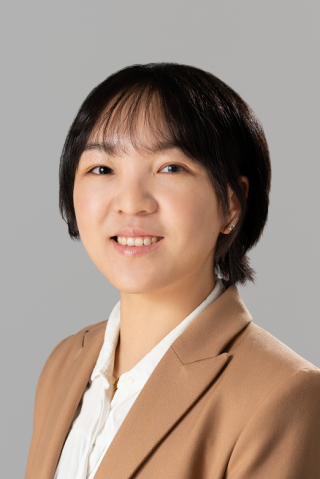
In 2017, she joined UCL to pursue an MRes in Integrated Photonic and Electronic Systems. Since October 2018, Xun has been a part of the Optical Networks Group as a PhD candidate under the supervision of Dr Georgios Zervas.
Her research interests include:
- Scalable and Intelligent Optical Network Systems
- Designing and modelling of scalable space division multiplexed technologies
- Specialty SDM fibres and switches with Artificial Intelligence methods
Contact email: xun.mu.17@ucl.ac.uk
- Ronit Sohanpal
- Ronit Sohanpal was awarded an MSci degree in Physics from UCL in 2018, with his final project investigating multi-mode fibre applications in optical tweezers. After graduating he joined the UCL-Cambridge Centre for Doctoral Training in Integrated Photonic and Electronic Systems (IPES), completing his MRes degree in 2019. His research projects during this time included thermal sensitivity characterisation of multi-core fibre for data centre interconnections and the evaluation of coherent transmission technologies for 100Gbps passive optical networks.
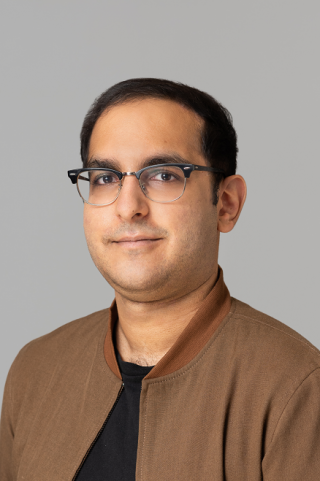
In October 2019 he joined the Optical Networks Group at UCL as an MPhil/PhD student under the supervision of Dr Zhixin Liu. He is currently working on high-performance frequency combs for RF signal processing and data centre interconnections. Ronit's research interests include:
- Optical transceivers for data centre interconnections
- Parametric frequency comb generation
- Optical signal processing
Contact email: ronit.sohanpal.14@ucl.ac.uk
- Dr Eric Sillekens
- Eric is a post-doctoral researcher as part of the TRANSNET Programme, supervised by Dr Robert Killey. Eric is working to holistically optimise long-haul fibre transmission systems, where his interest is in coded modulation and machine learning. He has designed modulation formats with a trade-off between fibre nonlinearity and shaping gain.
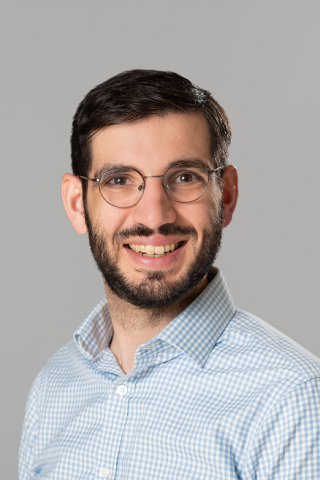
Eric received his BSc and MSc in electrical engineering from the Eindhoven University of Technology in 2012 and 2015 respectively, with his research focussed on advanced coded modulation for optical fibre transmission systems.
Research interests:- Coded modulation
- Transceiver digital signal processing
- Machine learning
Publications:
- Sillekens et al., 'An Experimental Comparison of Coded Modulation Strategies for 100 Gbit/s Transceivers', Journal of Lightwave Technology (2016)
- Sillekens et al., 'A Simple Nonlinearity-Tailored Probabilistic Shaping Distribution for Square QAM', Optical Fiber Communication Conference (2018)
- Sillekens et al., 'Experimental Demonstration of Geometrically-Shaped Constellations Tailored to the Nonlinear Fibre Channel', European Conference on Optical Communication (2018)
Contact email: e.sillekens@ucl.ac.uk
- Zichuan Zhou
- Zichuan Zhou received his BEng degree (with first-class Hons.) in Electronic and Electrical Engineering from University College London (UCL) in 2018. He was awarded the Clinton Prize as the top graduating student in the BEng programme, and was also recognised on the Dean's List in 2018 which commends the top 5% of students, in terms of academic performance, from across the Faculty.
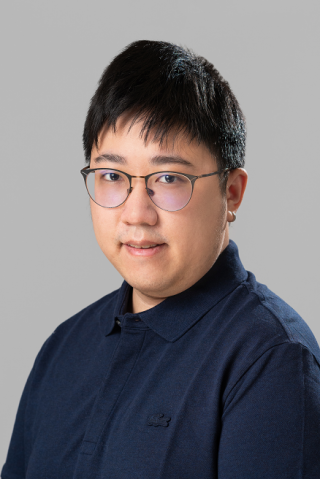
After graduating, Zichuan joined the UCL-Cambridge Centre for Doctoral Training in Integrated Photonic and Electronic Systems (IPES) and completed his MRes degree in 2019. His research project at Cambridge focussed on the design of semiconductor optical amplifier (SOA) based optical switch.
In October 2019, Zichuan joined the Optical Networks Group at UCL as an MPhil/PhD student, under the supervision of Dr Zhixin Liu. His research interests include:
- Directly-modulated laser
- Optical transceivers for data centre interconnections
- Laser dynamics
Contact email: zichuan.zhou.14@ucl.ac.uk
PhD Students
- Hadi Alkharsan
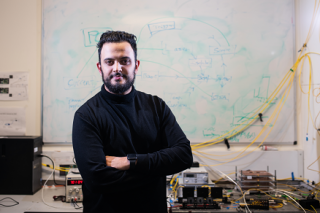
Hadi Alkharsan graduated with first-class Honours in Electronic Engineering and Telecommunications (BEng) from Queen Mary University of London in 2015. He then pursued a Telecommunications MSc here at UCL and graduated with a Distinction. After this, Hadi worked for British Telecommunications (BT) as a Network Designer and Tester within the Global MPLS and Mobile IP networks.
From there, he received funding from the University of Cambridge and UCL Centre for Doctoral Training (CDT) for a 4-year PhD programme in Connected Electronic and Photonic Systems. Hadi joined the Optical Networks Group in October 2020 and is supervised by Dr George Zervas. He is investigating artificial intelligence techniques and algorithms to optimise optical switching and networking techniques for high-performance computing applications.
Contact email: hadi.alkharsan.15@ucl.ac.uk
- Romulo Aparecido
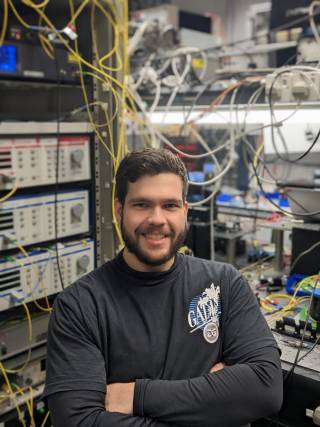
Romulo received his BEng degree in Electronic & Telecommunications Engineering from São Paulo State University (UNESP) in 2020, with his undergraduate project on the mitigation of nonlinearities using machine learning techniques. He also received his MSc in Electrical Engineering from UNESP in 2022, with his final project on the design of silicon integrated Mach-Zehnder Modulators using artificial neural networks and heuristic optimization algorithms.
In parallel, Romulo also worked at the Brazilian Center for Research and Development (CPQD, Centro de Pesquisa E Desenvolvimento) as a member of the photonics team. In addition to device optimisation, most of his work at CPQD was in the clean room. His projects included an integrated external cavity laser, a single-channel 1 Tbps silicon integrated transceiver, resulting in several publications [1-5].
In January 2023 he joined the UCL's Optical Network Group as a PhD student, supervised by Professor Polina Bayvel. His research focus is on experimental aspects of next-generation optical ultrawideband transmission systems and he is also interested in integrated photonics, optical fibre nonlinearities, digital signal processing and machine learning.Contact email: romulo.aparecido.22@ucl.ac.uk
[1] Mitigation of nonlinear phase noise in single-channel coherent 16-QAM systems employing logistic regression, R. Aparecido, L. Marim, R. Penchel, G. Perez and I. Aldaya, OPTICAL AND QUANTUM ELECTRON-ICS, Springer.
[2] Broadband and highly efficient integrated polarization rotator designed by topology optimization, R. Aparecido, Y. Bustamante and I. Aldaya, APPLIED OPTICS, Optica Publishing Group.
[3] Mitigation of nonlinear phase noise in coherent 16-QAM longreach PONs by K-nearest neighbors-based classification., R. Aparecido, L. Borges, M. Abbade, and I. Aldaya, Simpósio Brasileiro de Telecomunicações e Processamento de Sinais (SBrT), Florianópolis, Brazil.
[4] Inverse design of a broadband silicon nitride polarization rotor, Y. Bustamante, R. Aparecido, and I. Aldaya, Frontiers in Optics + Laser Science, Washington, United States of America.
[5] Nonlinear phase noise compensation in single-span digital coherent optical systems employing artificial neural networks, L. Marim,R. Aparecido, J. Augusto, M. Santos, R. Penchel, G. Perez, M. Abbade, and I. Aldaya, Sociedade Brasileira de Ótica e Fotônica (SBFoton) International Optics and Photonics Conference (IOPC), São Carlos, Brazil.
- Alex Bennett
- Alex Bennett was awarded a BSc degree in Physics from Cardiff University in 2021. After graduating, he joined the Centre for Doctoral Training in Compound Semiconductor Manufacturing in 2021, where he obtained an MSc degree in Compound Semiconductor Physics. Under the supervision of Dr Zhixin Liu, his MSc project involved optimising phase modulator driving conditions in the context of flat optical frequency comb generation.
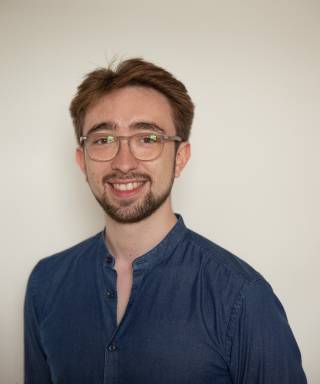
He joined the Optical Networks Group at UCL as an MPhil/PhD student in October 2022 to further his master’s project by generating optical frequency combs utilising an integrated photonics platform; Dr Zhixin Liu supervises his project.
His research interests include the following:
• Optical frequency combs
• Compound semiconductor materials
• Photonic integrated circuits
• Ultrafast electronic/optical pulse shapingContact mail: alex.bennett.22@ucl.ac.uk
- Henrique Buglia
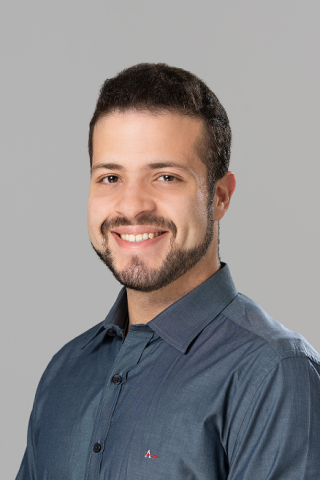
Henrique Buglia joined the Optical Networks Group as a PhD researcher in February 2021 under the supervision of Dr Lidia Galdino. He is working on modelling ultra-wideband optical fibre transmission systems, with a focus on the nonlinearities that arise when ultra-wideband signals are used to transmit information. He is also developing and applying digital signal processing and machine learning techniques to mitigate the nonlinear distortion in ultra-wideband transmission.
Prior to joining ONG, Henrique completed his master's degree at the State University of Campinas (UNICAMP) in Brazil, working on digital communication, coding theory, lattices and groups.
Contact email: henrique.buglia.20@ucl.ac.uk
- Yijia Cai
- Yijia Cai graduated in BEng Electronic and Electrical Engineering with a First-class degree at University College London in 2022 and was awarded Rank Prize ‘Undergrad Vacation Optoelectronics Grant 2022’ and Rank Prize ‘Best Undergrad Research Output 2023’.
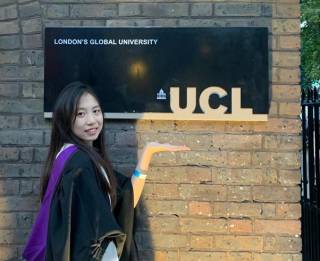
She continued to pursue an MSc degree with Distinction in Wireless and Optical communications at UCL in 2023. Her research projects are on the design of low phase noise and flat spectrum optical parametric frequency comb.
In September 2023, Yijia joined the Optical Networks Group as a MPhil/PhD student to further her mater’s research focusing on optical frequency comb (OFC) generation and application, under the supervision of Dr. Zhixin Liu.
Her research interests include the following:
• Optical frequency combs
• Ultrafast electronic/optical pulse shaping
• Parametric frequency comb generation
• Dual-comb generation
Contact email: yijia.cai.19@ucl.ac.uk - Farah Comis
- Farah Comis was awarded an MEng in Electronic and Electrical Engineering from University College London (UCL) with a first-class Hons. (2016-2020). She joined the University of Cambridge and UCL Centre for Doctoral Traning in Connected Electronic and Photonic Systems in September 2020. Farah obtained an MRes degree with Distinction from the University of Cambridge. During her master's degree, Farah carried out two research projects: the first with Dr Alfonso Ruocco working on the optimised design of lithium niobate Kerr comb generators, and the second with Professor Richard Penty (university of Cambridge) where she worked on the optimised design of III-V/SOI adiabatic tapered couplers using the heteroepitaxial growth technique.
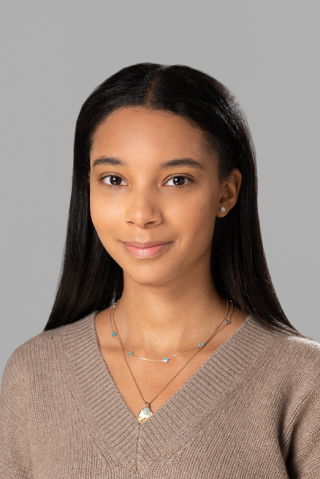
In September 2021 Farah joined the Optical Networks Group as a PhD student. She is currently working on lithium niobate on insulator (LNOI) integrated photonics, under the supervision of Dr Alfonso Ruocco.
Her research interests include:
- Integrated photonics systems with implementation on high index contrast platforms
- Photonic transceivers
- Optical neural networks
- Quantum integrated circuits
Contact: farah.comis.16@ucl.ac.uk
- Michael Doherty
Michael Doherty was awarded an MSci in Physics from Imperial College London in 2017. After working as a data engineer for various financial institutions, he joined the UCL-Cambridge CEPS CDT, completing his MRes in 2022. Research projects during his MRes included a study of free space optical switches for quantum data centre applications and applying invertible neural networks to the problem of oxygen estimation from photoacoustic images.
In October 2022, he joined the Optical Networks Group at UCL as a PhD researcher. He is currently working on applying deep reinforcement learning to solve resource allocation and routing problems in optical networks, under the supervision of Dr Alejandra Beghelli.
Research interests include:
• Deep reinforcement learning and explainable AI
• Data-driven techniques for software-defined network management
• Geometric deep learning for topology-agnostic network optimisationContact email: michael.doherty.21@ucl.ac.uk
- Mindaugas Jarmolovicius
Mindaugas Jarmolovicius completed an integrated MEng at UCL in 2021, working on projects on the design and implementation of novel CPU architecture and the digital implementation of end-to-end machine learning in optical communication systems. He joined the Optical Networks in October 2021 as a PhD student under the supervision of Professor Robert Killey. Mindaugas is working on optical communication channel simulations, exploring novel neural networks for transmission optimisation suited for real-time transmission and its digital implementation.
His research interests include:
- Machine learning and neural networks
- Digital and hardware design
- Coherent optical system simulations
Contact email: min.jarmolovicius.17@ucl.ac.uk
- Yanwu Liu
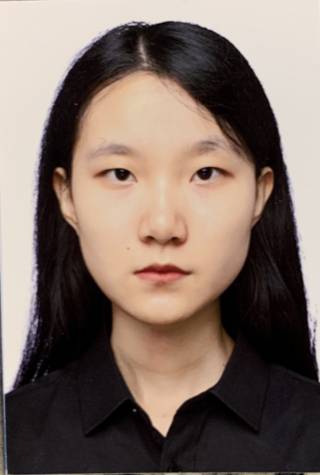
Yanwu Liu graduated in BEng Electronic and Electrical Engineering with a First-class degree at University College London in 2019 and was awarded the IET Prize. She continued to pursue an MSc degree in Wireless and Optical communications at UCL in 2020. She then joined the UCL-Cambridge Centre for Doctoral Training in Connected Electronic and Photonic Systems (CEPS) and completed her MRes degree in 2021. Her research projects included signal coding for pilot-assisted optical injection phase lock loop and free space data centre networks for machine learning.
Yanwu Liu joined the Optical Networks Group at UCL as an MPhil/PhD student in December 2021. She is currently developing free space optical switches in data centre networks under the supervision of Prof. George Zervas. Her research interests include:
- Free space optics
- Optical switching and networking for quantum and classical data centres
Contact email: yanwu.liu.15@ucl.ac.uk
- Jakub Kostial
Jakub Kostial graduated with a BSc in Physics with a First-Class degree from the University of Strathclyde. He then pursued a MSc in Physics at UCL and subsequently took up as a position as a Data Scientist at Deutsch Telekom. His research projects include simulations of noble metal nanocomposites and spectral emission classification of quantum dots using neural networks. Jakub joined the Optical Networks Group at UCL as an MPhil/PhD student in October 2023. He is currently developing free space optical networks under the supervision of Dr. Filipe Ferreira.
- Optical computing
- Optical signal processing
- Machine learning and neuromorphic computing
Contact email: andrej.kostial.21@ucl.ac.uk
- Robin Matzner
- Robin was awarded an MEng in Electronic Engineering from the University of Exeter in 2019. Whilst studying there he undertook a bachelors dissertation looking into damage detection using vibration feature extraction and Mahalanobis distances to classify faults in vibration data, as well as a master's dissertation working on a hardware and software platform viable for intelligent swarm robotics. Whilst studying at the University of Exeter, Robin also worked as a Junior Electronic Engineer at Dashboard LTD, an AI and IoT startup service provider, where he worked on vibration sensing, data extraction, as well as wireless communications for wind turbine condition monitoring.
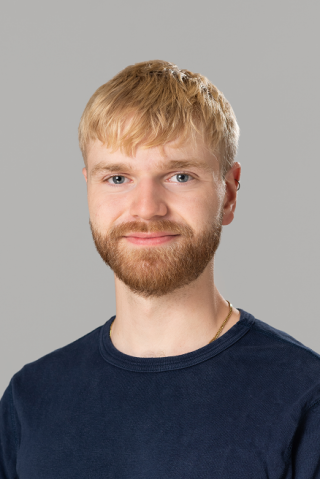
Robin joined the Optical Networks Group as an MPhil/PhD student in October 2019, where he works on the possibilities of increasing throughput of physically modelled optical networks via ML and AI methodologies. His research interests include:
- Physical modelling of optical channels within networks models
- AI and ML methodologies for complex optimization problems
Contact email: robin.matzner.19@ucl.ac.uk
- Jake Paterson
Jake Paterson was awarded a BSc in Physics from the University of Bath in 2018. Shortly after he joined the National Physical Laboratory in Teddington, UK, working on research concerning optical frequency combs for the maintenance of the national timescale and support of next generation optical atomic clocks. Afterwards he joined the UCL-Cambridge CEPS CDT and was awarded an MRes in 2022. Research during his MRes included fabrication of a photoacoustic sensor array consisting of plano-concave microresonators and phase detection of ultrasound signals using interferometric techniques.
In October 2022 he joined the Optical Networks Group at UCL as an MPhil/PhD student under the supervision of Dr Zhixin Liu and Prof Paul Beard. He is currently working on improved phase detection of photoacoustic signals using a Mach–Zehnder interferometer architecture in collaboration with the Medical Physics and Biomedical Engineering department.
Research interests include:
• Photoacoustic imaging
• Optical frequency combs and applications
• Laser noiseContact email: jake.paterson.21@ucl.ac.uk
- Evan Sutcliffe
- Evan Sutcliffe was awarded a MEng in General Engineering, specialising in Electronics, from Durham University in 2020. His master's project undertaken during this degree looked at applying machine learning techniques to cloud radio access networks.
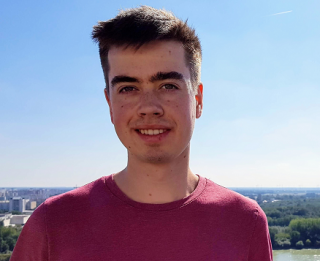
After graduation, Evan joined UCL for the Delivering Quantum Technologies Centre for Doctoral Training (CDT). During his first year on the programme Evan completed his MRes degree, which included a research project on simulating entanglement distribution in quantum networks. In Autumn 2020 Evan joined the Optical Networks Group (ONG) at UCL under the supervision of Dr Aleandra Beghelli, to continue his research on quantum networks.
Research interests:
- Quantum network design
- Distributed quantum algorithms
- Machine Learning applied to networks
Contact email: evan.sutcliffe.20@ucl.ac.uk
- Rekha Yadav
Rekha graduated from Indian Institute of Technology Madras (IITM), India in 2022 with a Master of Science by Research degree in Electrical and Electronic Engineering. Where, she investigated digital signal processing (DSP) algorithms to compensate for multiple impairments in the dispersion-managed M-QAM modulated optical system. In addition, she also developed the in-house optical recirculating loop used in the IITM laboratory. She was also awarded a T.S. Veda Giri Memorial Award from IITM for publishing the research results in a highly rated journal. While studying at IITM, she also worked as R&D electronics engineer at Tejas Networks Limited, an optical and data network products company based in India.
She joined the project "Beyond Exabit Optical Communications" in September 2022 as a PhD student under the supervision of Dr. Filipe Ferreira in the Optical Network Group. The aim of the project is to transform optical communications to go beyond current single-mode technology limits with sustainable energy-consumption per bit.
Contact email: rekha.yadav.22@ucl.ac.uk
- Jiaqian Yang
Jiaqian Yang was awarded an MSc from Tsinghua University in 2018 with a thesis project entitled ‘Investigating broadband photonic analogue-to-digital converter and microwave photonic radar systems’. After graduating, Jiaqian joined the UCL-Cambridge Centre for Doctoral Training in Integrated Photonic and Electronic Systems. During his master's year Jiaqian completed two research projects: the first focused on high-speed optical transceivers and was supervised by Prof. Robert Killey, and the second looked at machine learning based on optical processors which was in collaboration with Optalysys Ltd.
Jiaqian joined the Optical Networks Group at UCL as an MPhil/PhD student in October 2019. He is currently developing nonlinear models and compensation algorithms supervised by Prof. Robert Killey and will investigate ultrawideband optical transmission systems. His research interests are:- Nonlinear fibre optics
- High speed optical transceiver design
- Application of machine learning to nonlinear compensation
Contact email: jiaqian.yang.18@ucl.ac.uk
YouTube Widget Placeholderhttps://www.youtube.com/watch?v=STfhru_2uUo
- Fully funded PhD studentships - High-capacity and adaptive optical fibre networks
We invite you to apply for fully funded studentships available for 2024/25, in the Optical Networks Group, Department of Electronic and Electrical Engineering at University College London (UCL).
Why this research is important: Optical communications systems and networks underpin the global communications infrastructure and the Internet, and are increasingly being used inside data centres. We look at understanding what is needed to support the increasing broadband data demands of a modern, global society. Through the study of future optical fibre network architectures and transmission physics our research will enable new applications, essential to our digital lives of today.
Who you will be working with: You will be based in the Optical Networks Group led by Professor Polina Bayvel and your work will be integrated in the ongoing research programmes. These aim to maximise optical fibre network capacity, though a combination of new research in nonlinear physics, information theory, space division multiplexing, machine learning and digital signal processing. The ONG collaborates closely with leading industry and research groups around the world with many coming to use our state-of-the art optical fibre transmission and network test-bed. We have a long track record of training very successful PhD graduate who have gone on to win multiple prizes and awards and are currently working in industry and academia world-wide.
What you will be doing: You will be looking into how to transform optical networks to be adaptive and intelligent and to provide further capacity scaling. This requires the understanding of all linear and nonlinear phenomena related to the propagation of multiwavelength optical signals in various media, including different types of fibres and free-space. We investigate maximising optical fibre network capacity, using new wavelength bands and fibres, and research in nonlinear optics, information theory, space division multiplexing, machine learning and digital signal processing.
Who we are looking for: We are currently looking for academically outstanding applicants, in high-speed, ultrawideband and space multiplexing optical fibre transmission systems, including fibre nonlinearities and their mitigation.
Funding: All studentships are fully funded by UCL EPSRC DTP (Doctoral Training Partnership) for 4 years. They provide:
- 4 years fees (Home rate) (International students will receive a UCL award to cover the home/international fee difference)
- Maintenance stipend at the UCL EPSRC DTP enhanced rate (ie £1,000 above the UKRI London-weighted rate; this was £21,622 in 2023/24, and rises each year)
- Research Training Support Grant (RTSG) of £4,800. This is to cover additional costs of training eg courses, project costs, conferences, travel
Students will be registered for 4 years and are expected to submit their thesis within the 4 year funded period. The project should be designed and supervised to facilitate this.
For part time students, the stipend and duration will be adjusted pro-rata (e.g. a 50% FTE student will receive 50% of stipend for up to 8 years).
How to Apply: Prospective students will need to apply directly on this page quoting the project ID 2228cd1301. This page also contains further information on student eligibility, application process, and much more. Successful candidates will also need to complete an application via the UCL admissions portal.
To make any informal inquiries, please send a CV, including a list of any publications, with the contact details of at least two referees to Prof Polina Bayvel who will also be happy to answer any questions about these opportunities.
General Enquiries
Along with our advertised positions, we are always happy to hear from post-doctoral researchers and PhD students interested in working with us. We are looking for team members with aptitude and interest in hands-on experimental work in the areas of high-speed optical fibre transmission systems, digital signal processing and machine learning for optical communications. Applicants should have an excellent academic record with a first degree in electronic and electrical engineering, physics or a related discipline and demonstrate enthusiasm and ability for research work.
Please contact Professor Polina Bayvel in the first instance: p.bayvel@ucl.ac.uk
- A-F
- Alex Alvarado, now with Eindhoven University of Technology
- Paris Andreades, now with ORCA Computing
- Shamil Appathurai, now with Mobitel, Sri Lanka
- Stefano Baroni, now with CSC, USA
- Carsten Behrens, now with Deutsche Telekom, Germany
- Yannis Benlachtar, now with Vaslytics, UK
- Joshua Benjamin
- Alessandro Bianciotto, now with Coriant, Germany
- Heribert Brust
- Vittorio Cannas, now with SpacEarth Technology and Leoni Corporate Advisors, Italy
- Hou-Man Chin, now with Technical University of Denmark
- Evgeny Churin
- Callum Deakin, now with Nokia Bell Labs
- Andrea Del Duce, now with Quantis International, Switzerland
- Michael Dueser, now with Deutsche Telekom, Germany
- Hubert Dzieciol
- G-L
- Saifuddin Faruk, now with University of Cambridge, UK
- Robert Friskney, now with Ciena, UK
- Paolo Gambini, now with Wellness & Wireless, Italy
- Giancarlo Gavioli, now with Nokia, Italy
- Thomas Gerard, now with Infinera
- Michael Horn
- Maria Ionesco, now with Xtera, UK
- David Ives, now with University of Cambridge, UK
- Igor Khrushchev, now with Aston University, UK
- Sean Kilmurray
- Irina Kostko, now with Bereskin & Parr, Canada
- Eugene Kozlovski, now with Swiss Management Center, UK
- Boris Karanov, now with Eindhoven University of Technology
- Anouk Van Laer, now with ARM, UK
- Roger Lao, now with Deloitte Consulting, London, UK
- Olga Lavrova, now with University of New Mexico, USA
- Leslie Laycock, now with BAE Systems
- Lidia Galdino, now with Corning Incorporated, UK
- Ruijie Luo, now with Meta, USA
- Kumail Kermalli
- M-R
- Sergei Makovey, now with Corning Inc, UK
- Jose Manuel Delgado Mendinueta, now with NICT, Japan
- Vitaly Mikhailov, now with OFS, USA
- Ignacio de Miguel, now with University of Valladolid, Spain
- David Millar, now with Infinera
- Rudolfo di Muro, now with Ericsson, Sweden
- Alec Myers
- Naohide Nagatsu, now with NTT, Japan
- Antonio Napoli, now with Coriant, Germany
- Robert Packham, now with Infinera, UK
- Ben Parker, now with Lot Oriel UK
- Christopher Parsonson, now with Solve Intelligence, UK
- Milen Paskov, now with Meta, UK
- Thorsten Pfister, now with SICK, Germany
- Josep Prat, now with Universitat Politecnica de Catalunya, Spain
- Ben Puttnam, now with NICT Japan
- Derek Rothnie, now with EE, UK
- S-Z
- Martin Sabry
- Marti Sales, now with University of Cambridge, UK
- Masaki Sato, now with NEC Corporation, Japan
- Seb Savory, now with University of Cambridge, UK
- Ralph Schlenk, now with Bell Labs, Nokia, Germany
- Robert Schober, now with Univ. of British Columbia, Canada
- Daniel Semrau
- Zacharaya Shabka, now with Inferlink Corporation, USA
- Maxim Shatalov, now with OOO Lell, Russia
- Dr Mykyta Shevchenko
- Kai Shi, now at Microsoft Research Lab, Cambridge
- Vladimir Smitnitskii
- Alex Stavdas, now with the University of Peloponnese, Greece
- Hans Joerg Thiele, now with ADVA, Germany
- Ramanan Thiruneelakandan, now at Nissan Technical Centre, UK
- Benn Thomsen, now at Microsoft Research Lab, Cambridge
- Fedor Timofeev, now with WT&T, Canada
- Veronika Tsatourian, now with Heriot-Watt University, UK
- Michael Uhl, now with McKinsey, USA
- Anastasiia Vasylchenkova, now with Nature, UK
- Robert Waegemans, now with Ciena, Canada
- Philip Watts, now with ARM, UK
- Christian Webber, now with Technical University of Berlin
- Xianhe Yangzhang
- Hui Yuan, now with Huawei, China
- Wenting Yi, now with Acacia/Cisco, USA
- Wolfgang Zeiler
 Close
Close

